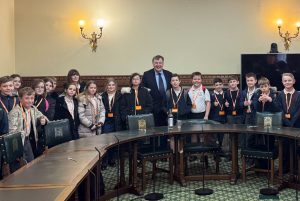Last night, I voted for the restrictions that the Government has been advised to bring in to respond to the threat of Omicron. I did this reluctantly, but thought it best to set out why I did this, as I have had many emails from people both in support of the changes, and against.
I should be clear, these changes do not mean any business closures or any restrictions on social gatherings. Work from home is in guidance – there is no mandatory stay at home order. The only legal restrictions are mandatory face masks in most indoor public places and requiring proof of a negative test or double vaccination to enter some venues.
The measures the Government are taking are so mild they are easy to ridicule as meaningless. Working from home if you can is just guidance, and will not have the force of law. Personally, I hate mask wearing, but do it where I am meant to, and it is not much of an imposition being asked to wear them in a wider range of indoor spaces. Hospitality is specifically excluded to limit the negative impacts. The requirement at major events to have a negative lateral flow test from the past 24 hours unless you can show you are double vaccinated is actually less than what most major events such as premier league football games have been doing anyway in recent months.
The Government has listened to representations that I and many colleagues made to them about so called passports and have ensured that anyone can gain a covid passport by demonstrating either full vaccination, a positive case of covid within the past 180 days or a negative test. Thus, there is no compulsion to take a vaccine to gain a passport.
I would not support mandatory vaccinations – something like that should always be voluntary but those who choose not to get vaccinated must accept that there may be small consequences for their actions – such as having to get a test periodically.
Mandatory use of the new NHS COVID Pass will only apply in certain settings, such as nightclubs and other venues where large crowds gather including unseated indoor venues with more than 500 people, unseated outdoor venues with more than 4,000 people and any venue with more than 10,000 people. Unlike last winter when businesses were required to close, this approach will allow businesses to remain fully open.
We do not yet know Omicron’s severity, its exact rate of transmission, nor indeed the full effectiveness of our vaccines against it. We know that the Omicron variant is incredibly infectious, with rates doubling in the UK every 2 days. We know that having one or two jabs has little impact on your chance of getting and transmitting the virus, but three (ie a booster) does reduce it by 75%. It seems inevitable that Omicron will spread across the population extraordinarily quickly, and all we can hope to do is slow it slightly.
I realise that there are many who are fundamentally opposed to these restrictions – and I have a great deal of sympathy with their views. I am, at heart, a libertarian and greatly regret that we live at a time when government are interfering with people’s lives in this way. However, I am a politician not a doctor or an immunologist and it is my duty to listen to both national scientific advice, and also the advice of our local health professionals here in Essex, and act accordingly – even if it makes me unpopular politically. However, as a society, we do need to learn to live with risk as we cannot eliminate all threats, and have to accept that, after a point, the efforts to reduce threats cause more damage than the threats themselves.
These regulations automatically expire after 6 weeks, (on 26 January, having come into force on 10 and 15 December). The Government has committed to review the measures after 3 weeks. I will then consider again, based on what we know at that time, what to do at that stage.


